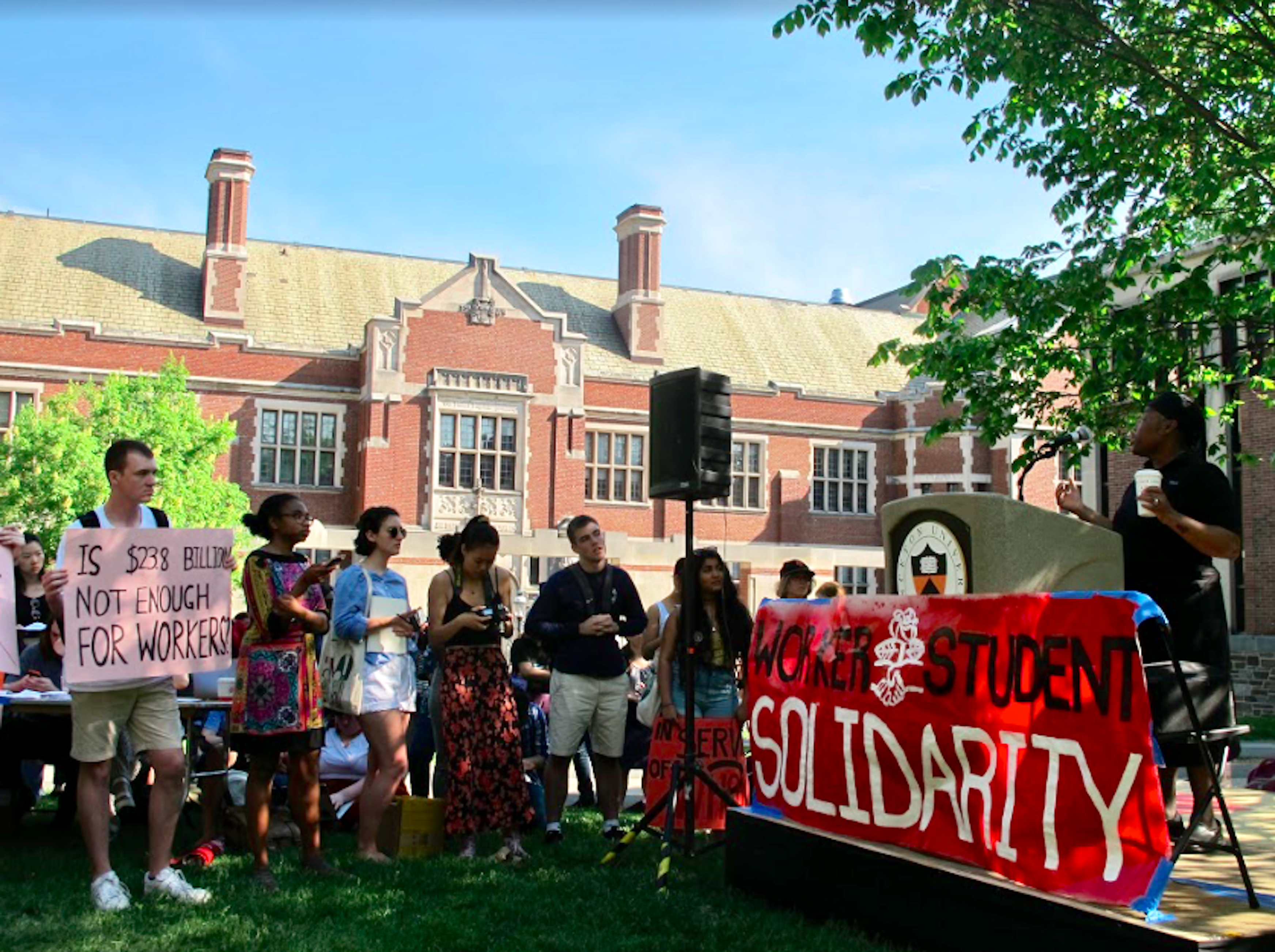By Sophia Cai
Correspondent
A group of socially conscious Princeton University students recently submitted a petition aimed at tackling campus workers’ rights and protections against unfair treatment based on sex and race.
On June 2, the Princeton University chapter of the Young Democratic Socialists of America (YDS) released their petition raising awareness around grievances that campus workers have leveled against the university and management.
Signed by 660 students, alumni, faculty, staff and other community members, the petition was circulated along with a grievance report, which asked for better pay, adequate housing during extreme weather, fairer treatment from management, and better protection from racial discrimination and sexual harassment.
Princeton YDS has been focused on supporting campus workers’ rights since spring of last year, when it organized a rally for workers in April in response to a lack of proper accommodations and overtime compensation for those who worked during a snowstorm.
This year, it conducted multiple weeks of listening hours, where workers came and talked to members of YDS in private about their grievances. YDS also reached out to dozens of workers about their experiences working for the University.
After interviewing a total of nearly thirty workers from dining services, facilities and other departments, students from YDS organized a town hall on May 9, to bring these concerns to the public. The town hall was organized with the approval of Service Employees International Union Local 175, the university’s largest union.
About 80 students and employees attended the May town hall, where campus staff members shared testimonies of job uncertainty, low wages and sexual harassment.
In an anonymous testimonial read by a YDS member at the town hall, a female employee revealed two cases of sexual misconduct that she brought forward against two university employees. One no longer works at the university as a result; the other continues to be employed on campus.
Vincent, a university employee who works for the building services department, compared his experience sleeping on campus during a snowstorm to being “packed like sardines in [… a concentration camp.”
Al Kornegay, from building services, allegedly had a manager who “threatened to punch [him] out.”
In addition to raising concerns about low wages and job security, the workers’ testimonies also demonstrated a pattern of favoritism and intimidation from the management.
“The idea of the town hall was not only to address a lack of community awareness of campus workers and the grievances, but also to reverse the usual power dynamics — workers were the ones on stage, with the microphone, with the power & the expertise, and students & faculty were the ones listening,” Rebecca Ngu, a YDS member who conducted many of the initial interviews, said.
After the town hall, YDS looked for a durable way to consolidate and document their grievances in hopes of publicly pressuring the administration to address the workers’ concerns. Therefore, it crafted a longer grievance report and a petition that could be easily accessed and disseminated.
The grievance report includes a list of grievances based on both the public testimonials and the one-on-one interviews. Organized under five broad categories, the list of grievances includes direct quotes as well as relevant researched information that speak to the cost of the university’s labor practices.
“Personally, the most difficult thing for me to know is the degree to which managers can wield their power to arbitrarily discriminate among workers, especially among marginalized workers,” Ngu said. “What can the workers do? Refuse to come to work and be fired? Lose their income that they use to support their kids? When workplaces are not democratic and workers are not empowered, abuse will occur.”
The report and petition was emailed to President Christopher L. Eisgruber, the Princeton University Board of Trustees, and the University Provost’s Office last Wednesday, June 20. While no specific demands were made, YDS is asking that the university address all the grievances outlined in the report in good faith with the union during contract negotiations later this month.

